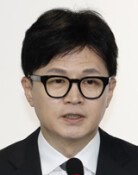Gwangju Exposes 72 Cheaters from Last Year
Gwangju Exposes 72 Cheaters from Last Year
Posted December. 08, 2004 23:09,
The Gwangju Succession-
The Gwangju Investigation Unit for the College Scholastic Aptitude Test cheating incidents (Chief Lee Joong-hwan, First Criminal Division) stated December 8, While reviewing the cheating cases received by the police, we found similar methods of cheating through cell phones that occurred during last years exam.
According to the prosecutors, 72 high school students from five high schools in Gwangju were involved in the cheating incidents last year, including: 20 seniors who organized the crime and received the answers (original members), 36 seniors who sent and received the answers (champs), and 16 juniors who transmitted the answers (helpers).
Six of the 14 students apprehended for this years cheating incidents were found to have already acted in last year as the original members (one student was a former senior student who had retaken the exams this year) and helpers (five students were juniors last year). In addition, 10 of the 162 suspects not apprehended had also acted as helpers last year.
It was discovered that the students had lodged in four motel rooms located at Shinan-dong, Buk-gu, Gwangju, on the day of last years exams (November 5) and sent and received the answers through the text messages.
Aftereffects-
As most of those involved in last years cheating incidents are currently in college, it is expected that mass expulsion or other types of disciplinary measures will be taken.
Though cases have occurred in which college students were expelled by taking proxy exams, it is the first time since this type of large-scale expulsion due to cheating incidents have occurred.
Several students who failed in last years exams are also expected to file lawsuits directed at their respective colleges.
Should the prosecution decide to look into these succession cases, the entire body of students suspected of cheating may be investigated, as the statute of limitations (five years) has not been exceeded for the case. This would raise the issue of fairness with other regions.
As it is the first time that the universities in Gwangju have faced cheating incidents for the College Scholastic Ability Test, no disciplinary measures are stipulated explicitly in their rulebooks. Those who have matriculated through unfair means may, however, have their matriculation status revoked.
A college source stated, Should the Ministry of Education and Human Resources Development not stipulate explicit disciplinary measures for students who cheated on the Scholastic Ability Tests, the respective college has the right to deny matriculation status to these students, and that should the students become involved in these activities after entering college, the educational board may decide upon the level of discipline.
Code+Number Cheating Incidents Discovered-
The Nowon Police Station of Seoul discovered through sifting through phone logs of code+numberand web-to-phone (method of sending cell phone messages by computers) messages that two to four senior students of high school A of Nowon district were involved in the cheating incidents.
The police is currently confirming through relevant sources of the methods in sending text messages, and whether organized cheating had occurred.
The cyber-crime investigation unit of the Seoul Police Agency also confirmed 23 cases of web-to-phone text messages sent through 10 agents in Seoul alone.
The Incheon District Police Agency has also discovered that 12 students out of the 98 suspects had used web-to-phone text messages.
The Seoul Police Agency plans to request a search warrant for these agents, and identify the cheating students by obtaining the information and Internet logs of those that accessed the agents Internet site server.







